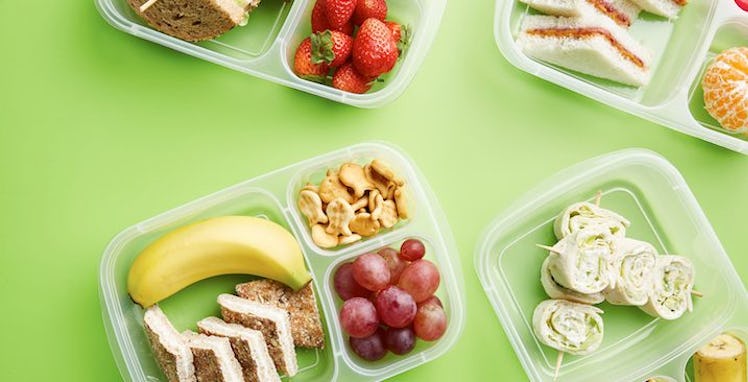Many people have this idea in their heads that eating healthy food is incredibly hard to do.
But the truth is, healthy eating and proper nutrition doesn't need to be that hard. It's all about knowing a few important rules before going into it.
Below are a few common nutrition pitfalls and what you can do about them:
1. Not eating the proper amount of food
Whether you're eating too much or too little, the fact of the matter is, it's hard to know exactly how much you should be eating.
For example, we've all read this on a nutrition label:
Percent Daily Values are based on a 2,000 calorie diet. Your daily values may be higher or lower depending on your calorie needs.
But, how should you know if your daily values should be higher or lower? And furthermore, how much higher or lower should they be?
The amount of calories you should be eating is dependent on a number of factors, including height, weight, age, activity level and goals.
Determining how many calories you should be eating comes with a deep understanding of your body.
Sure, you can estimate how much you should be eating with online calculators, but if you're serious about eating a proper quantity for you, then you'll want to determine the following:
1. How many calories you burn in a complete resting state (Basal Metabolic Rate or BMR) 2. How many calories you burn in total throughout the day (Total Energy Expenditure or TEE)
These two numbers, along with all those other facts listed above, are what will determine how much you should be eating.
The good news is, the more you burn, the more you can afford to eat. That's not to say you should exercise like crazy just so you can eat more, but that's another article for another day.
Bottom line: Get to know your body and your activity habits. Evaluate from there.
2. Not snacking throughout the day
There are two kinds of eaters in this world: grazers and loaders.
Grazers (commonly referred to as snackers) pick at small bits of food throughout the day. Loaders take in one or two gigantic meals a day, and they likely skip breakfast.
In a perfect world, we'd all be part-grazer, part-loader.
When we go a long time without eating, we often end up overcompensating and overeating when it comes to mealtime because we're so hungry.
Not to mention, the big meals we do end up eating tend to be on the unhealthier side. (Think burgers, pasta, pizza, etc.)
These kinds of foods don't provide us the micronutrients, AKA vitamins and minerals, our bodies need to function optimally.
So, what's a loader to do? Eat a moderate-sized breakfast, lunch and dinner, and keep healthy snacks on hand.
Your main meals should be filled with a balanced plate of protein, fats and carbs, and your snacks should be low in sugar and high in fiber to help keep you running throughout the day.
3. Being too strict
Ever been on a diet before? *Raises hand*
Like most people, that diet likely didn't work out for you.
Why? Because the plethora of fad diets existing in our world today are focused on eliminating certain foods completely from your diet.
Atkins, for example, cuts out a huge amount of carbs. Juice cleanses have you only consuming the juice for a number of days, with maybe a bit of “real” food in addition.
The reality is, these diets or cleanses are not sustainable by any means.
We all know that we only want what we can't have. This is no different for food.
When we're too strict with our food choices, we often end up overeating when we finally get our hands on whatever that forbidden food was.
It's the mentality of “I haven't had a chocolate chip cookie in two weeks, and I don't know when I'll ever have one again, so I need to have 15 right now!” (If you're wondering, yes, I've eaten 15 cookies in a row.)
Furthermore, being on an extremely rigid meal plan can often lead to obsessive and disordered behaviors.
So instead of committing to yet another diet, commit to eating nutrient-dense food and allow treats in moderation.
4. Not prepping
Heads up, one more cliche coming at you: Failing to prepare is preparing to fail.
As much as you want to hate, it's a true statement. And when it comes to nutrition, it certainly rings true.
A few key ways to keep your nutritional health thriving are food prepping, packing your lunch for work and having those healthy snacks on you throughout the day.
Not only will you be doing your body good by giving it the proper fuel it needs, but you'll also be saving money by bringing lunch instead of buying it.
New to food prepping? All it takes is five easy steps.
